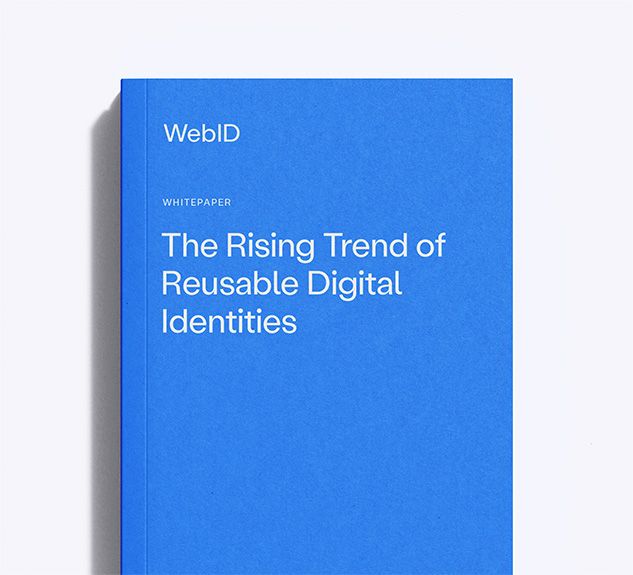Transparency Register
A Key Tool in the Fight Against Money Laundering, Financial Fraud, and Corruption
In an increasingly interconnected world, transparency is not just a buzzword in HR departments but a crucial driver for the integrity of companies and organizations. The Transparency Register, for example, plays a central role in an AML-compliant Know-Your-Business (KYB) process. But what exactly is the Transparency Register, and why is it so important?
What is the Transparency Register?
The Transparency Register is a central platform that collects and provides information and data about the Ultimate Beneficial Owners (UBOs) of companies. These UBOs are natural people who exercise control over a company or individuals who directly or indirectly hold more than 25% of a company’s capital shares or voting rights.
The Transparency Register was introduced in Germany based on the Money Laundering Act (GwG) and is part of broader efforts to combat various financial crimes such as money laundering, terrorist financing, and tax evasion. It aims to reveal the true structures and legal entities behind companies and break through opaque corporate networks.
The Transparency Register is Based on the EU Anti-Money Laundering Directive (AMLD)
The foundation for the Transparency Register was established through European law, particularly the Fourth and Fifth EU Anti-Money Laundering Directives (AMLD).
Under AMLD guidelines, all EU member states are required to implement Transparency Registers to ensure uniform standards in the fight against money laundering and other forms of financial fraud.
At the European level, the European Beneficial Ownership Registers Interconnection System (BORIS) connects the national Transparency Registers of EU member states. This system enables cross-border access to information about beneficial owners whose companies are based in another EU country.
Who Must Be Listed in the Transparency Register?
Following the 2021 amendment to the Money Laundering Act, nearly all companies are required to disclose their beneficial owners (UBOs) in the Transparency Register.
In Germany, the following company types must register their beneficial owners:
- GmbHs (Limited Liability Companies)
- AGs (Stock Corporations)
- KGs (Limited Partnerships)
- Associations and Foundations
Exceptions apply to sole proprietorships and companies whose beneficial owners are already clearly identifiable through other registers (such as the commercial register).
At the EU level, the Transparency Register obligation includes, for example:
- SA and SARL in France and Luxembourg (Société Anonyme and Société à Responsabilité Limitée)
- PLC and Ltd in the UK and Ireland (Public Limited Company and Private Limited Company)
- SRL and SPA in Italy (Società a Responsabilità Limitata and Società per Azioni)
- SRL and SA in Spain (Sociedad de Responsabilidad Limitada and Sociedad Anónima)
- NV and BV in the Netherlands and Belgium (Naamloze Vennootschap and Besloten Vennootschap).
Challenges in Using the Transparency Register
Companies and individuals required to maintain their information in the Transparency Register often face several challenges in compliance.
Legal and Regulatory Requirements
The legal framework for the Transparency Register is complex and subject to ongoing adjustments – just like AML regulations that are regularly updated.
Additionally, besides properly listing UBOs in the Transparency Register, companies must also comply with further commercial and tax regulations. Failing to do so can negatively impact KYB procedures required by banks and business partners, not just during onboarding but on an ongoing basis.
Administrative and Financial Burdens
Registering in the Transparency Register comes with administrative effort. Companies must compile, verify, and update information on their beneficial owners. This process can be time-consuming and resource-intensive, especially for complex corporate structures or frequent ownership changes.
Moreover, costs may arise from registration and necessary external consultations. Many businesses perceive these expenses as disproportionate, particularly when the direct economic benefits of the register are not immediately evident.
Technical Difficulties and User-Friendliness
The online platform of the Transparency Register has improved in recent years. However, users still report issues with navigation, data entry, and accessing already registered information, along with server outages and slow loading times.
Data Protection and Security Concerns
The Transparency Register is frequently criticized for collecting and making sensitive personal data accessible. Companies and beneficial owners fear misuse or unauthorized access to their data. Since the EU mandated that certain information must be publicly accessible, the debate over privacy protection has intensified.
Lack of Awareness
Many companies are insufficiently informed about their obligations and requirements. Official guidelines and training materials are often difficult to navigate and understand, leading to incorrect or incomplete entries that can result in fines.
Consequences of Non-Compliance
Companies that fail to comply with reporting obligations and do not keep their beneficial owner information up to date in the Transparency Register risk hefty fines, which can amount to several hundred thousand euros.
The Transparency Register and Data Protection
A frequently raised concern is data protection. While the information in the Transparency Register is not fully public, it can be accessed under certain conditions by authorized people, such as journalists or non-governmental organizations. However, access is strictly regulated.
Conclusion
The Transparency Register is an essential tool in combating financial fraud and increasing economic integrity. Companies should take their registration obligations seriously and ensure that their information is always up to date. In the long run, not only authorities but also companies themselves benefit from enhanced credibility and transparency.
The Rising Trend of Reusable Digital IdentitiesThe Rising Trend of Reusable Digital Identities
